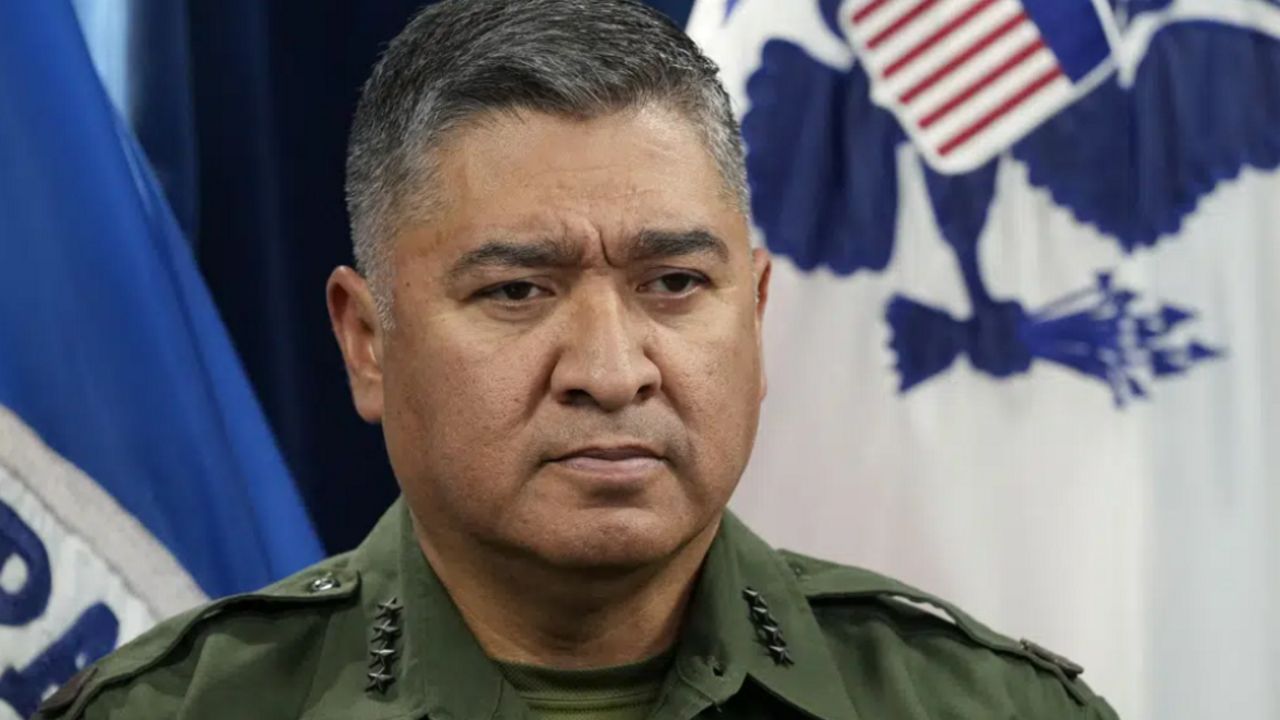WASHINGTON — The head of the U.S. Border Patrol announced Tuesday that he was retiring, after seeing through a major policy shift that seeks to clamp down on illegal crossings at the U.S.-Mexico border following the end of Title 42 pandemic restrictions.
Chief Raul Ortiz said in a note to staff Tuesday obtained by The Associated Press that he will leave June 30. It's not clear yet who will replace him.
“I leave at ease, knowing we have a tremendous uniformed and professional workforce, strong relationships with our union partners, and outstanding leaders who will continue to tirelessly advocate for you each day,” Ortiz said in the note.
Ortiz managed the Border Patrol and its roughly 20,000 agents through the COVID-19 pandemic and Title 42 emergency health restrictions that began in March 2020 and allowed agents to quickly return migrants over the border. He also oversaw a new set of restrictions rolled out May 11 meant to discourage migrants from crossing illegally while opening up other legal pathways. While there are concerns about overcrowding at stations, so far, the massive chaotic scenes anticipated by even President Joe Biden have not materialized.
The Border Patrol, an agency of the Department of Homeland Security, has been been under a constant spotlight for years as the number of illegal crossings has reached record highs. Agents take into custody migrants who cross the border illegally which has increasingly become families. Agents wade into the Rio Grande to rescue drowning migrants and search for children dumped alone by smugglers along the 1,951-mile U.S.-Mexico border.
But the agency was also at the center of a firestorm during the Trump administration's policy of separating families. And during the Biden administration, some agents were found to have engaged in “unnecessary use of force” against non-threatening Haitian migrants. Two weeks ago, an 8-year-old Panamanian girl died in their custody on her family’s ninth day in custody; the most time allowed is 72 hours under agency policy.
Ortiz took over as chief in August 2021, following the ouster of Rodney Scott, who enthusiastically embraced Trump’s policies, including construction of a border wall with Mexico. Ortiz, like Scott, was a career official who slowly climbed the ranks over his 30-year career, and was Scott’s top deputy at the time he became the agency’s leader but stayed away from more charged issues like the border wall.
Still, he didn't avoid blunt discussion of the border. During a hearing before a congressional committee in March, a frustrated Ortiz tried to articulate the issues he was seeing at the border.
House Homeland Security Committee Chairman Mark Green, R-Tenn., asked him: “Does DHS have operational control of our entire border?”
Ortiz replied: “No, sir.”
Almost from the start of his tenure, Ortiz faced extraordinary frustration within his ranks as illegal crossings reached the highest levels ever recorded. Ortiz acknowledged at a meeting with agents in Laredo, Texas, in January 2022 that morale was at an “all-time low” after an agent complained about “doing nothing” but releasing migrants in the U.S. to pursue their cases in immigration court, according to leaked video published in the Washington Examiner. At another meeting in Yuma, Arizona, an agent turned his back on Homeland Security Secretary Alejandro Mayorkas.
On Tuesday, Mayorkas praised Ortiz as a great leader who was committed to the well-being of his agents.
“Selecting him to lead the Border Patrol was among the most important decisions I have made,” he said. “Chief Ortiz agreed to postpone his retirement several times since and the Border Patrol, the Department, and our country have been all the better for it.”





